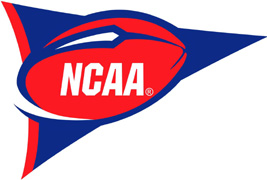 Top Class Action Lawsuits
Top Class Action Lawsuits
You’re Fired! No wait—that’s the wrong show. This show is in fact a legal one—a consumer fraud class action lawsuit alleging violations of the Racketeer Influenced and Corrupt Organizations Act (RICO) filed against Donald Trump. And it just got certified baby! by U.S. District Judge Gonzalo P. Curiel.
The Trump U lawsuit alleges that through false claims Trump made regarding Trump University LLC, he would gain tens of millions of dollars from attendees who believed they would learn Trump’s real estate secrets. (isn’t Trump University an oxymoron?)
The judge decided that California businessman Art Cohen, the lead plaintiff in the racketeering class action, had provided sufficient evidence that the marketing of the allegedly fraudulent live events, including mailers with prominent pictures and quotes from Trump, as well as a coat of arms and educational language, resulted in thousands of people to pay to attend.
In the lawsuit, Cohen accuses Trump of failing to teach the students his investment secrets, failing to contribute in any meaningful way to the curriculum for the live events or choose the seminar instructors and mentors. Moreover, the New York State Education Department warned the defendant that using the name “University” was illegal without a license, while multiple attorneys general launched investigations into the deceptive practices, according to the complaint.
The lawsuit further alleges that Trump uniformly misled Cohen and the class that they would learn his real estate secrets through him and his handpicked professors at the elite Trump University, which is now named the Trump Entrepreneur Institute. Cohen alleges he attended a free seminar after receiving a “special invitation” in the mail, then paid almost $1,500 to attend a three-day real estate retreat, where he paid almost $35,000 more for additional training.
In his certification, Judge Curiel wrote, “Although [Trump] may yet show that plaintiff and the putative class members knew or should have known that defendant had devised a scheme to falsely market Trump University via mail or wire prior to October 2009, the court is satisfied that determination of defendant’s statute of limitations defense in this case will not defeat the predominance of common issues in this case.”
Judge Curiel also ruled that Cohen’s claims were typical of those among other proposed class members because plaintiff’s description of his experience with Trump University matched the allegations alleged on behalf of the putative class in his complaint.
The case is Art Cohen et al. v. Donald J. Trump, case number 3:13-cv-02519, in the U.S. District Court for the Southern District of California.
Top Settlements
Asbestos Settlement Stands. Asbestos—the problem that will not die. But here’s a good result from a bad situation. An $18 million dollar asbestos settlement will stand, as ordered by the judges involved in the Izell case in California. The lawsuit was filed by plaintiffs Bobbie and Helen Izell alleging Bobbie developed mesothelioma from asbestos exposure to defendant Union Carbide’s products, resulting in his death.
Until 1985, Union Carbide was a supplier of asbestos to companies that made and marketed products for the construction industry. According to their lawsuit, Bobbie Izell owned a construction company and built about 200 homes in California between 1964 and 1994. While he did not work as a laborer or supervisor, the plaintiff alleges he often visited the jobsites.
At the time the lawsuit went to court, just five defendants remained, including Union Carbide. The trial took four weeks and the jury found for Izell, awarding the plaintiffs $30 million in compensatory damages and $18 million in punitive damages. The award consisted of $5 million in past and $10 million in future non-economic damages and $5 million in past and $10 million in future loss of consortium damages. The jury assigned 65 percent liability to Union Carbide. However, the award for compensatory damages was reduced by $24 million to $6 million.
Paper carriers taking checks to the bank! Read all about it! Yup—they won their employment lawsuit against the publishers of the now bankrupt North County News in San Diego. The $3.2 settlement ends claims against Lee Publications Inc, alleging the carriers they were misclassified and undercompensated as independent contractors, and unfairly dinged for missed or wet papers.
The lawsuit was filed in 2008 by plaintiffs seeking to represent roughly 800 home-delivery carriers who alleged the publisher treated them like employees but paid them like contractors. The lawsuit further claimed Lee personnel supervised, trained and otherwise treated them like employees but, in violation of California labor laws, denied them overtime, meal and rest breaks, and other employee benefits, according to their complaint.
According to the complaint, the company also docked its carriers up to $5 for each customer complaint about damaged, wet or “allegedly undelivered” papers, which, the plaintiffs argued was an attempt by Lee to make the plaintiffs unlawful insurers of the company’s merchandise. Allegedly, the carriers were given more papers than they had customers on their delivery route, and then Lee would deduct from their compensation the cost for each extra paper. Nice bunch to work for, not.
In the settlement, the class members will be eligible to receive shares in the $3.2 million fund, minus plaintiffs attorneys’ fees and costs, and $36,000 total for eight lead plaintiffs. Bet they’re celebrating this weekend.
Hokee Dokee—Time to adjourn for the week. Have a fab weekend—See you at the bar!









